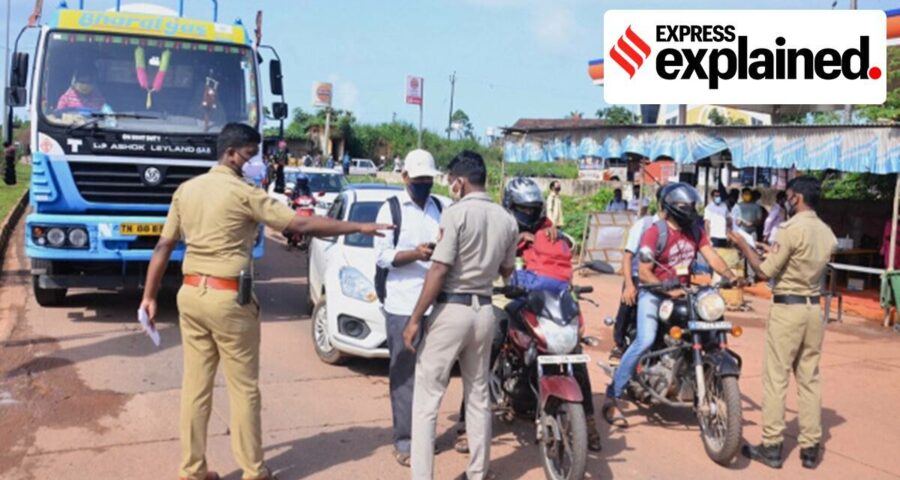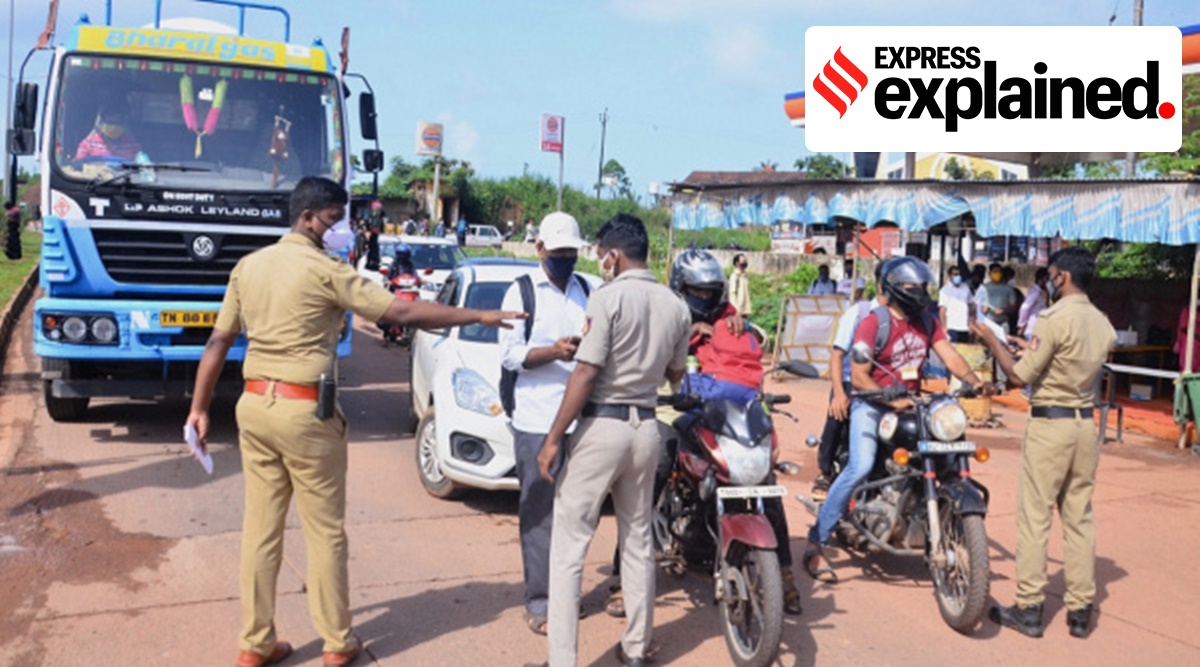The decision was taken in a bid to ensure that the spread of the infection is kept in check, especially after the surge in cases in Kerala following Onam.
The Karnataka government has recently issued orders making a week-long institutional quarantine mandatory for all students and employees entering the state from neighbouring Kerala, which continues to record an uptick in the number of Covid-19 cases.
However, there was confusion that persisted after the guidelines were published. Here’s what the government has said in the latest guideline.
Why has the government decided to impose institutional quarantine?
The Karnataka government had decided to impose institutional quarantine on those returning from Kerala based on recommendations made by the Covid-19 technical advisory committee.
“It has been observed that students and employees entering Karnataka from Kerala are testing Covid-19 positive during repeat tests despite carrying negative RT-PCR reports with them. The number of such cases is considerably high in Dakshina Kannada and Udupi,” the order said.
The decision was taken in a bid to ensure that the spread of the infection is kept in check, especially after the surge in cases in Kerala following Onam.
Is the quarantine rule applicable to all travellers?

However, only students and employees should be in institutional quarantine facilities for seven days since arrival while others are permitted to be in home quarantine for the same time period.
Should students and employees furnish negative RT-PCR reports on arrival?
Yes. The latest order (dated September 1, 2021) issued by the Karnataka government specifies all students and employees returning to the state from Kerala shall compulsorily furnish a negative RT-PCR certificate which is not older than 72 hours. The same is mandatory irrespective of their Covid vaccination status (one or both doses). The validity of such certificates is for one week, during which they will, however, be kept in institutional quarantine.
While administrators and principals of educational institutions have been asked to make necessary arrangements to quarantine students, the respective offices/companies/firms have been directed the same for employees.
“Under no circumstance should such persons be permitted to be in home isolation,” the order mentioned. While students and employees will be under “strict supervision” for seven days, their swabs will be collected and sent for RT-PCR tests.
Those in institutional quarantine will be released only after they obtain a negative RT-PCR report.
Newsletter | Click to get the day’s best explainers in your inbox
What is the protocol if anyone develops symptoms while in quarantine?
While in quarantine, students and employees have been directed to do self-assessment and to get an RT-PCR test done and seek medical consultation if they experience any symptom.
If tested positive, he/she shall be compulsorily shifted to a Covid Care Centre. Those who had come in contact with the infected person will also be subsequently subjected to RT-PCR testing, following the same guidelines.
Who all are exempted from institutional quarantine?
All those who are neither students nor employees studying or working in Karnataka shall be permitted to be in home quarantine for seven days since their arrival from Kerala. However, a negative RT-PCR report (not older than 72 hours) is mandatory for all.
Others exempted from institutional quarantine are:
- Short term travellers returning within three days
- Students arriving in Karnataka for examinations along with one parent each (who would return within three days)
- Passengers in transit to and from Kerala in any mode of transport
- Constitutional functionaries, healthcare professionals and their spouses
- Those in a dire emergency situation (death in the family, medical treatment etc.)
- Children below 2 years of age
Source: Read Full Article


